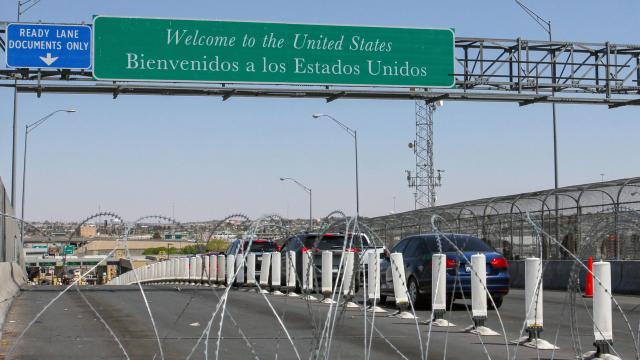A U.S. federal court in Boston ruled on Tuesday that suspicionless searches of electronics at U.S. border crossings are unconstitutional, finding that reasonable suspicion of an actual crime is required before authorities can demand access to phones and other devices.
Per Ars Technica, U.S. District Judge Denise J. Casper found that “basic” searches and seizures of travellers’ devices (those that involve authorities gaining access to devices without connecting external equipment or downloading files) violate the Fourth Amendment when conducted without probable cause or a search warrant. (Customs and Border Protection policy already requires a minimum of probable cause for advanced searches.)
Casper ruled with the plaintiffs, 11 travellers who said that their rights were violated when they were subject to searches not meeting those minimum prerequisites. Ten of those plaintiffs were U.S. citizens, according to TechCrunch.
U.S. authorities have long held that the border is an area where certain civil liberties simply don’t apply, something that ACLU staff attorney Esha Bhandari told TechCrunch earlier this year was a naked attempt at “using the pretext of the border to make an end run around” constitutional rights. CBP searches tens of thousands of devices annually at the border, with rates rising dramatically under Donald Trump’s administration, and the agency can share any data it collects with whichever law enforcement agency it chooses.
From the ruling:
[T]he Court declares that the CBP and ICE policies for “basic” and “advanced” searches, as presently defined, violate the Fourth Amendment to the extent that the policies do not require reasonable suspicion that the devices contain contraband for both such classes of non-cursory searches and/or seizure of electronic devices; and that the non-cursory searches and/or seizures of plaintiffs’ electronic devices, without such reasonable suspicion, violated the Fourth Amendment.
… Although governmental interests are paramount at the border, where such non-cursory searches—even ‘basic’ searches as broadly defined under CBP and ICE policies as well as the ‘advanced’ searches of plaintiffs’ electronic devices—amount to non-routine searches, they require reasonable suspicion that the devices contain contraband.
Additionally, the court found that such searches could expose plaintiffs to ongoing harm, as border authorities can review the results of prior searches when deciding who to search in the future. Casper specifically cited the events experienced by Suhaib Allababidi, who refused to unlock his phone at the border in 2017, prompting border agents to seize the device.
In 2019, CBP agents again searched Allababidi’s devices at the border. Casper also wrote that CBP agents’ searches of devices belonging to the plaintiffs turned up journalistic work and privileged attorney-client communications; in one case, the device in question was an employee phone officially owned by NASA’s Jet Propulsion Laboratory.
According to Ars Technica, Casper didn’t go so far as to place a nationwide preventive injunction on the practice, but the court “denied the request for injunctive relief without prejudice, so it can be raised again in future proceedings.” That means CBP is likely to change its policies to require individualized suspicion before searches in order to prevent future lawsuits, though the government can still appeal Tuesday’s ruling.
“This is a great day for travellers who now can cross the international border without fear that the government will, in the absence of any suspicion, ransack the extraordinarily sensitive information we all carry in our electronic devices,” Sophia Cope, senior staff attorney at privacy non-profit Electronic Frontier Foundation, said in a statement.
“This ruling significantly advances Fourth Amendment protections for millions of international travellers who enter the United States every year,” Bhandari added in the statement. “By putting an end to the government’s ability to conduct suspicionless fishing expeditions, the court reaffirms that the border is not a lawless place and that we don’t lose our privacy rights when we travel.”
